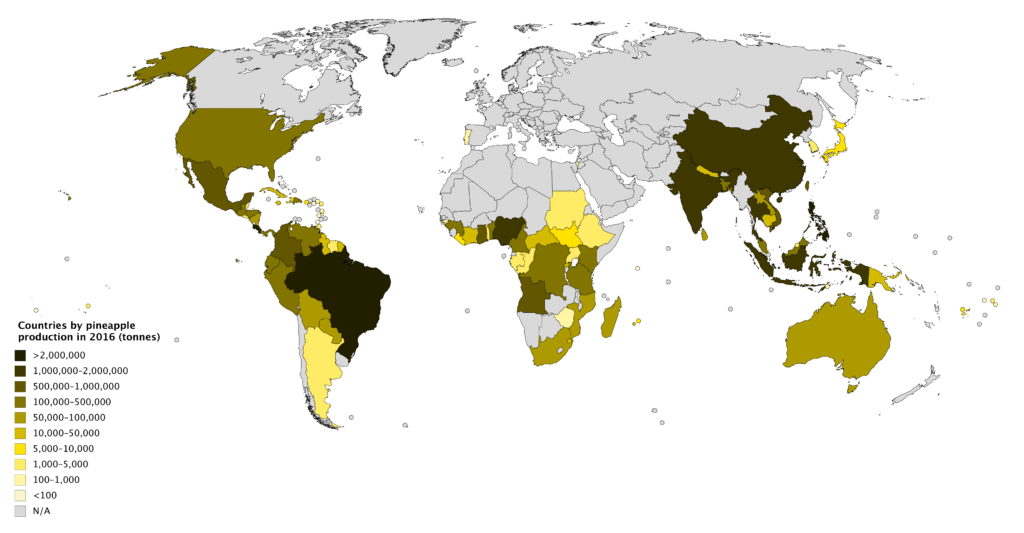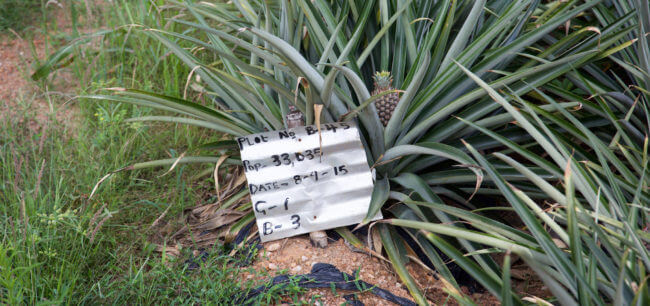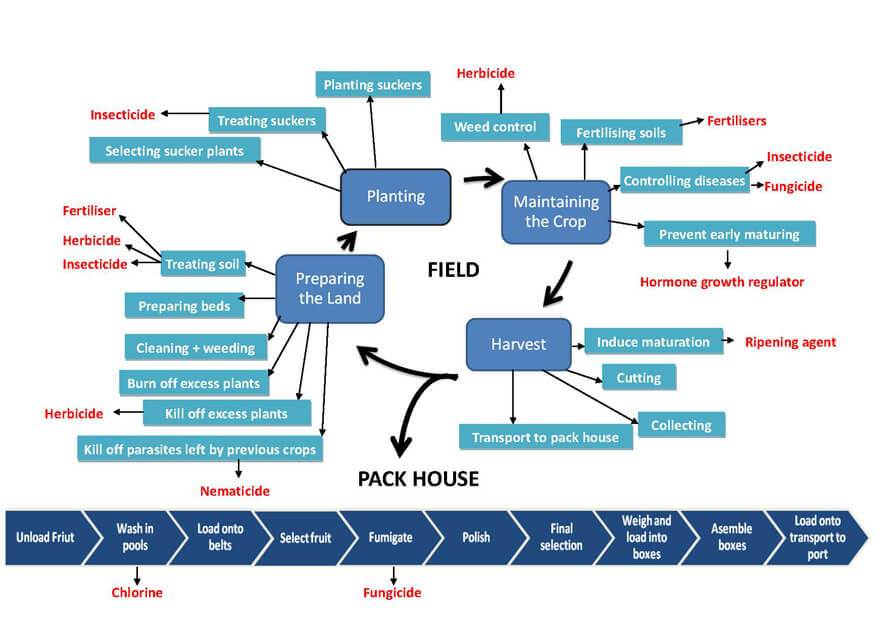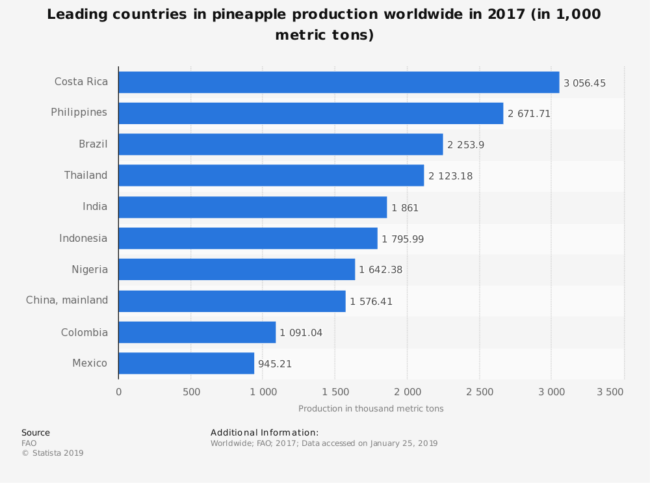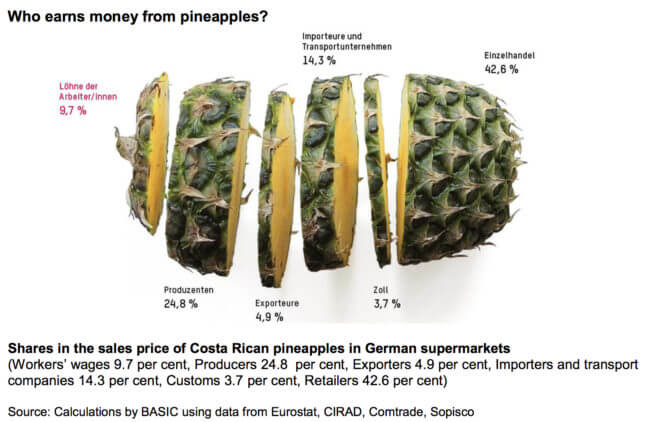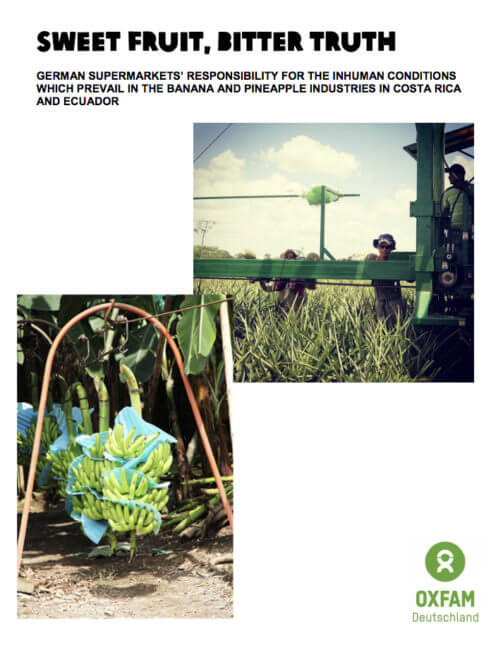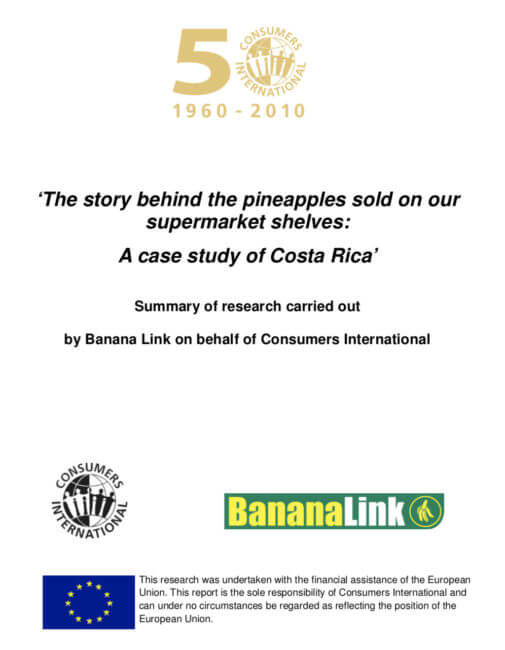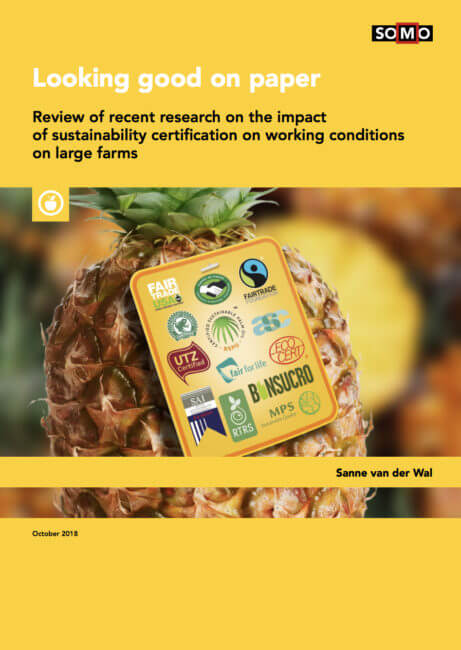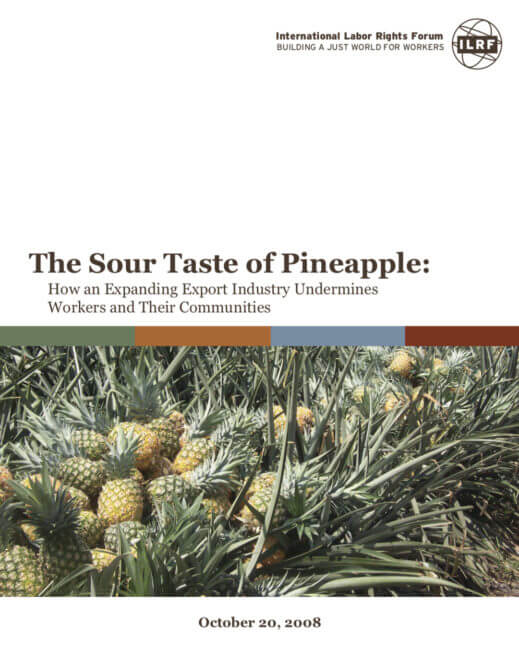Social Problems
Migrant Workers
Approximately 70% of workers in the Costa Rican pineapple industry are Nicaraguan migrants. These migrant workers are the secret to Costa Rica’s pineapple success. They provide a cheaper and more flexible workforce. Many have no official papers or visas, which leaves them particularly vulnerable to the power of their employers, who can sack and deport them at any sign of trouble, for example, if they complain about working conditions or join a trade union.
Subcontractors
Around 50% of workers on Costa Rican pineapple plantations are hired through subcontractors who provide a flexible, low paid and non-unionised workforce. They also allow the producing companies to avoid direct responsibility for ensuring adequate working conditions in line with national and international labour laws.
Salaries
In Costa Rica, the typical wage for pineapple workers is above the national average at €73 per week. However, they are expected to work at least 80 hours per week to earn this ‘privilege’. Many pineapple workers earn around half of what they deem to be a ‘living wage’.
Gender Discrimination
Unemployment amongst women in Costa Rica is around 11.2%, and pineapple companies increasingly prefer to employ men due to the ‘high costs’ associated with employing women, such as maternity pay. For those women that have secured work, the conditions can be very difficult, such as discrimination and, in some cases, sexual harassment. A report by Banana Link looking at the pineapple industry in Costa Rica found that three women working on one PINDECO (a Del Monte subsidiary) plantation alleged severe cases of sexual discrimination and harassment from male plantation managers. Women have also reported being sacked for becoming pregnant. The long working hours are particularly challenging for women who are left with no spare time to care for the family and household.
Trade Unions
The level of union organisation is extremely low (about 2%) in the Costa Rican pineapple industry. Union members can face discrimination, persecution and sometimes violence. Anti-union tactics include:
- moving union members to undesirable and low paid jobs
- mass redundancies, with only non-union members being re-hired
- putting union members on ‘blacklists’, preventing them from finding work on other plantations.
Human Health & Environmental Problems and Agrochemicals
Use of Chemicals
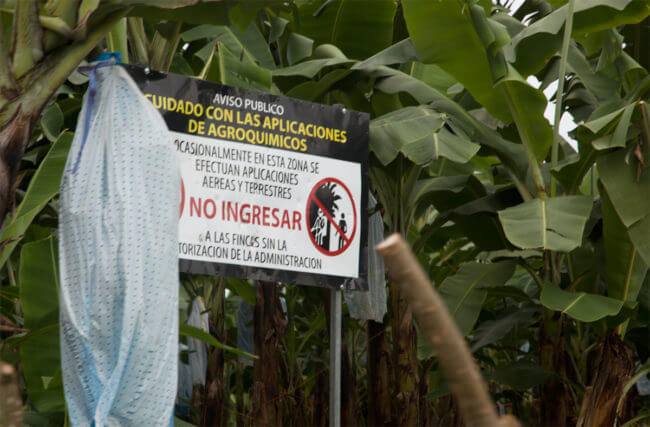
Pineapple production is characterised by large-scale, high-input and monoculture plantations dependent on regular and intense use of a number of toxic agrochemicals. In Costa Rica, pineapples are harvested twice a year, and more than 50 different chemical substances and 30-38kg of chemicals are used per year on one hectare under cultivation. Some of the chemicals like Paraquat are not licensed for use in the EU and are classified by the US as likely to be carcinogenic. According to the law, people working with pesticides are only allowed to work for 6 hours a day, but workers are often engaging in longer hours.
Environmental Issues
Moreover, the poor environmental practice of both national and international producers is leading to environmental problems of contamination of local aquifers and groundwater, soil erosion, sedimentation and deforestation. Many local communities have also had their natural sources of drinking water contaminated, for example in the communities of El Cairo, La Francia and Luisiana in the Southern Atlantic zone of Costa Rica where over 6,000 people have to rely on government tanks to deliver drinking water supplies to the affected region. Health impacts such as skin diseases, respiratory problems, gastric illnesses and birth defects have also been reported in local communities.
Despite national and international campaigns to halt the damaging expansion of pineapple production and hold companies responsible for their actions, environmental regulations continue to be violated; the pineapple companies’ economic and political power secures their impunity.
